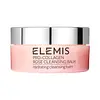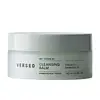What's inside
What's inside
 Key Ingredients
Key Ingredients

 Benefits
Benefits

 Concerns
Concerns

 Ingredients Side-by-side
Ingredients Side-by-side

Prunus Amygdalus Dulcis Oil
Skin ConditioningCaprylic/Capric Triglyceride
MaskingPEG-6 Caprylic/Capric Glycerides
EmulsifyingPEG-8 Beeswax
EmulsifyingCetearyl Alcohol
EmollientSorbitan Stearate
EmulsifyingSambucus Nigra Oil
MaskingPEG-60 Almond Glycerides
EmulsifyingParfum
MaskingSilica
AbrasiveAvena Sativa Kernel Oil
Skin ConditioningTriticum Vulgare Germ Oil
EmollientButyrospermum Parkii Butter
Skin ConditioningCitrus Aurantium Dulcis Peel Wax
Skin ConditioningGlycerin
HumectantLecithin
EmollientBorago Officinalis Seed Oil
EmollientPhenoxyethanol
PreservativeCocos Nucifera Oil
MaskingCitronellol
PerfumingGeraniol
PerfumingAcacia Decurrens Flower Wax
EmollientRosa Multiflora Flower Wax
Skin ConditioningTocopherol
AntioxidantCocoyl Hydrolyzed Collagen
CleansingRosa Canina Fruit Oil
EmollientCarthamus Tinctorius Seed Oil
MaskingBenzyl Salicylate
PerfumingSimmondsia Chinensis Seed Oil
EmollientRose Extract
Skin ConditioningPelargonium Graveolens Oil
MaskingRosa Damascena Flower Oil
MaskingRosa Damascena Extract
MaskingPadina Pavonica Thallus Extract
Skin ConditioningPrunus Amygdalus Dulcis Oil, Caprylic/Capric Triglyceride, PEG-6 Caprylic/Capric Glycerides, PEG-8 Beeswax, Cetearyl Alcohol, Sorbitan Stearate, Sambucus Nigra Oil, PEG-60 Almond Glycerides, Parfum, Silica, Avena Sativa Kernel Oil, Triticum Vulgare Germ Oil, Butyrospermum Parkii Butter, Citrus Aurantium Dulcis Peel Wax, Glycerin, Lecithin, Borago Officinalis Seed Oil, Phenoxyethanol, Cocos Nucifera Oil, Citronellol, Geraniol, Acacia Decurrens Flower Wax, Rosa Multiflora Flower Wax, Tocopherol, Cocoyl Hydrolyzed Collagen, Rosa Canina Fruit Oil, Carthamus Tinctorius Seed Oil, Benzyl Salicylate, Simmondsia Chinensis Seed Oil, Rose Extract, Pelargonium Graveolens Oil, Rosa Damascena Flower Oil, Rosa Damascena Extract, Padina Pavonica Thallus Extract
Ethylhexyl Palmitate
EmollientCaprylic/Capric Triglyceride
MaskingCoco-Caprylate/Caprate
EmollientPolyglyceryl-6 Dicaprate
EmulsifyingSynthetic Wax
AbrasiveTocopherol
AntioxidantTocopheryl Acetate
AntioxidantEucalyptus Globulus Leaf Oil
PerfumingPersea Gratissima Oil
Skin ConditioningEugenia Caryophyllus Leaf Oil
MaskingSimmondsia Chinensis Seed Oil
EmollientPrunus Armeniaca Kernel Oil
MaskingSesamum Indicum Seed Oil
EmollientSclerocarya Birrea Seed Oil
HumectantCaprylyl Glycol
EmollientEugenol
PerfumingLimonene
PerfumingEthylhexyl Palmitate, Caprylic/Capric Triglyceride, Coco-Caprylate/Caprate, Polyglyceryl-6 Dicaprate, Synthetic Wax, Tocopherol, Tocopheryl Acetate, Eucalyptus Globulus Leaf Oil, Persea Gratissima Oil, Eugenia Caryophyllus Leaf Oil, Simmondsia Chinensis Seed Oil, Prunus Armeniaca Kernel Oil, Sesamum Indicum Seed Oil, Sclerocarya Birrea Seed Oil, Caprylyl Glycol, Eugenol, Limonene
 Reviews
Reviews

Ingredients Explained
These ingredients are found in both products.
Ingredients higher up in an ingredient list are typically present in a larger amount.
This ingredient is an emollient, solvent, and texture enhancer. It is considered a skin-softener by helping the skin prevent moisture loss.
It helps thicken a product's formula and makes it easier to spread by dissolving clumping compounds.
Caprylic Triglyceride is made by combining glycerin with coconut oil, forming a clear liquid.
While there is an assumption Caprylic Triglyceride can clog pores due to it being derived from coconut oil, there is no research supporting this.
Learn more about Caprylic/Capric TriglycerideThis oil comes from the seeds of the desert shrub called Jojoba. It is more commonly known as jojoba oil, a non-comedogenic oil.
Jojoba oil does not contain fragrance and has many fatty-acids, making it a great soothing ingredient.
It also contains Vitamin E, a great moisturizing ingredient. Vitamin E is also an antioxidant and protects your skin against oxidative damage.
This ingredient humectant properties, meaning it helps draw moisture from the air. This helps keep your skin hydrated.
While jojoba has antibacterial properties, it is only able to kill some strains of bacteria.
Studies also show it helps in wound healing. In fact, Indigenous cultures have used jojoba as a moisturizer and to help treat burns for centuries.
Fun fact: Jojoba oil similar to natural human skin sebum, so it has a great effect on dry skin. It is also promising with helping to regulate sebum production.
Due to its fatty acid content, Jojoba oil may not be fungal acne safe. We recommend speaking with a professional if you have any concerns.
Learn more about Simmondsia Chinensis Seed OilTocopherol (also known as Vitamin E) is a common antioxidant used to help protect the skin from free-radicals and strengthen the skin barrier. It's also fat soluble - this means our skin is great at absorbing it.
Vitamin E also helps keep your natural skin lipids healthy. Your lipid skin barrier naturally consists of lipids, ceramides, and fatty acids. Vitamin E offers extra protection for your skin’s lipid barrier, keeping your skin healthy and nourished.
Another benefit is a bit of UV protection. Vitamin E helps reduce the damage caused by UVB rays. (It should not replace your sunscreen). Combining it with Vitamin C can decrease sunburned cells and hyperpigmentation after UV exposure.
You might have noticed Vitamin E + C often paired together. This is because it is great at stabilizing Vitamin C. Using the two together helps increase the effectiveness of both ingredients.
There are often claims that Vitamin E can reduce/prevent scarring, but these claims haven't been confirmed by scientific research.
Learn more about Tocopherol